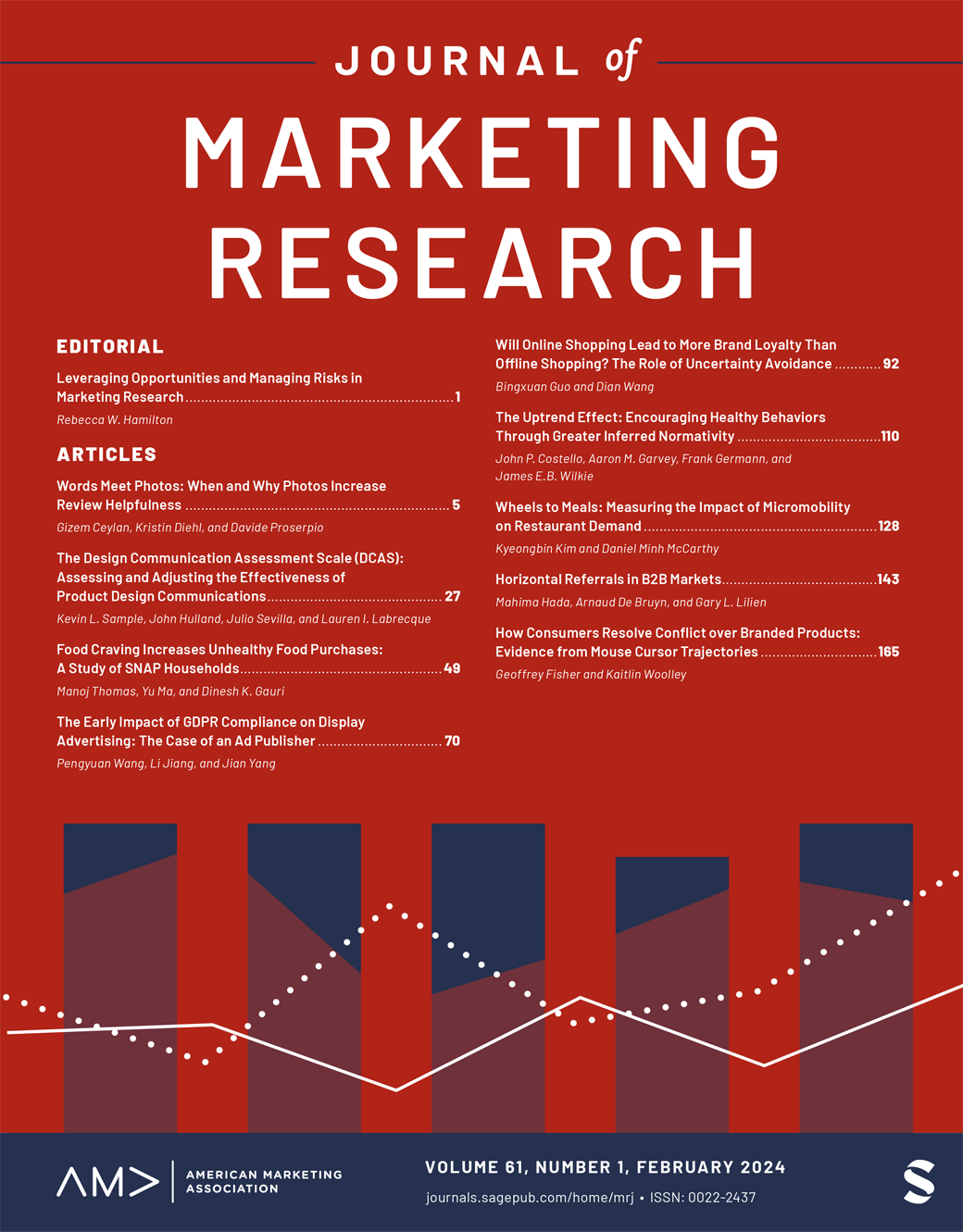EXPRESS: B2B市场的横向推荐
IF 5.1
1区 管理学
Q1 BUSINESS
引用次数: 1
摘要
横向推荐——当供应商推荐其他供应商时——在复杂的B2B市场中是一种常见现象。对于推荐供应商来说,提供尽可能好的横向推荐可能会加强与客户的关系,但也可能威胁到推荐供应商的未来收入和交叉销售机会。相反,供应商可以进行强制性推荐,即履行推荐另一家供应商的义务,同时将推荐供应商自身的利益放在首位。我们依靠角色理论及其前因(相互信任和推荐供应商的依赖性)来确定推荐供应商何时扮演朋友的角色(相对于商人)并提供尽可能好的推荐(相对于强制性推荐)。研究1是一项实验,支持了我们的理论模型。研究2是一项联合研究,将推荐供应商-客户关系的可观察的前因与他们选择的横向推荐联系起来。研究3是另一项实验,研究了横向推荐对推荐供应商-客户关系的影响,并表明提供强制性推荐会损害客户继续与供应商关系的意图。这种影响是由客户感知到的与其供应商的利益一致性来调节的。对于B2B营销研究和实践,我们报告称,供应商的依赖性对于预测横向推荐的质量至关重要,尽管一项探索性调查显示,客户在寻求推荐时忽略了这一维度,并关注相互信任。本文章由计算机程序翻译,如有差异,请以英文原文为准。
EXPRESS: Horizontal Referrals in B2B Markets
Horizontal referrals –when suppliers recommend other suppliers– are a common phenomenon in complex B2B markets. For the referring supplier, giving the best-possible horizontal referral may strengthen the relationship with its customer, yet it may also threaten the referring supplier’s future revenues and cross-selling opportunities. Instead, the supplier could make an obligatory referral, one that fulfills the obligations of recommending another supplier while keeping referring supplier’s own interests paramount. We rely on role theory and its antecedents (mutual trust and referring supplier’s dependence) to determine when a referring supplier adopts the role of a friend (vs. a businessperson) and gives the best-possible referral (vs. an obligatory referral). Study 1, an experiment, supports our theoretical model. Study 2, a conjoint study, links the observable antecedents of the referring supplier-customer relationship to their choice of horizontal referrals. Study 3, another experiment, looks at the consequences of the horizontal referral on the referring supplier-customer relationship and shows that providing an obligatory referral can hurt the customer’s intent to continue their relationship with their supplier. This effect is mediated by the customer’s perceived alignment of interest with their supplier. For B2B marketing research and practice, we report that the supplier’s dependence is critical to predicting the quality of horizontal referrals, even though an exploratory survey showed that customers overlook that dimension and focus on mutual trust when seeking referrals.
求助全文
通过发布文献求助,成功后即可免费获取论文全文。
去求助
来源期刊

Journal of Marketing Research
BUSINESS-
CiteScore
10.30
自引率
6.60%
发文量
79
期刊介绍:
JMR is written for those academics and practitioners of marketing research who need to be in the forefront of the profession and in possession of the industry"s cutting-edge information. JMR publishes articles representing the entire spectrum of research in marketing. The editorial content is peer-reviewed by an expert panel of leading academics. Articles address the concepts, methods, and applications of marketing research that present new techniques for solving marketing problems; contribute to marketing knowledge based on the use of experimental, descriptive, or analytical techniques; and review and comment on the developments and concepts in related fields that have a bearing on the research industry and its practices.
 求助内容:
求助内容: 应助结果提醒方式:
应助结果提醒方式:


